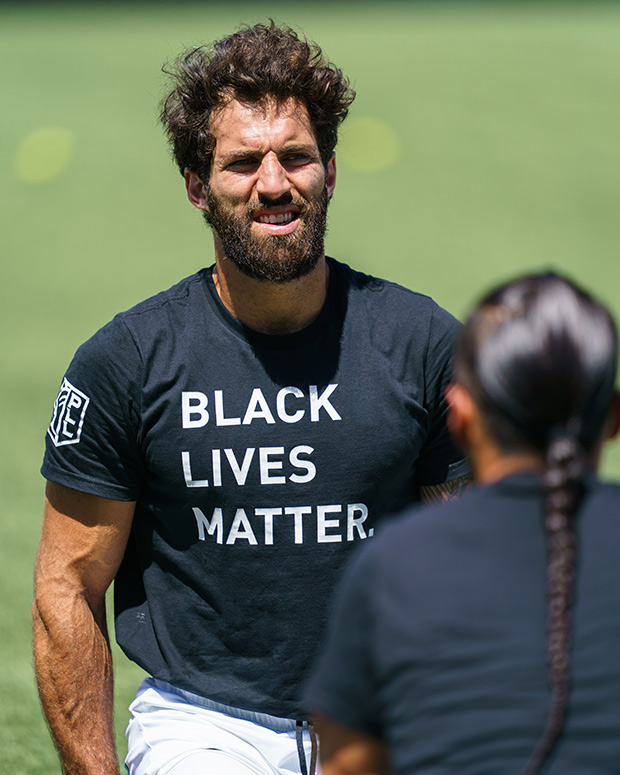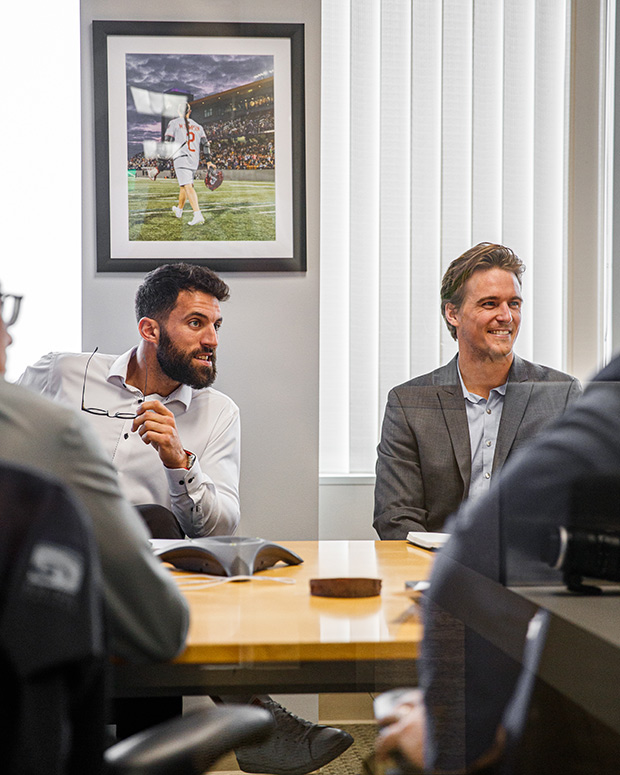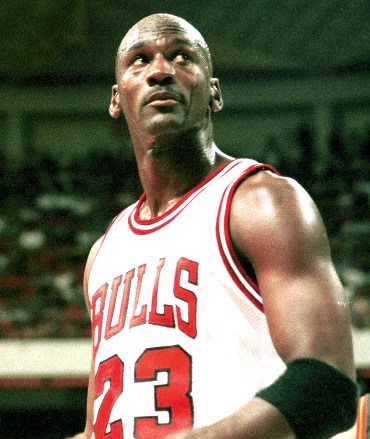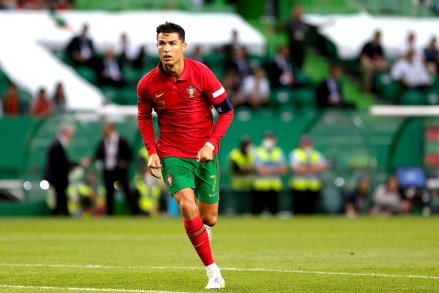
Paul Rabil went from parading a NCAA Championship trophy around Baltimore’s M&T Bank Stadium in front of nearly 50,000 lacrosse fans in 2007, to “playing on a backfield in New Jersey in front of 500” just a year later. The Maryland native whose name is eponymous with the sport of lacrosse found himself feeling shame and defeat around being a professional lacrosse player in his post-grad career as a Boston Cannon in the MLL. “People didn’t know major league lacrosse existed and those who did, didn’t really care. I wanted to change that,” Rabil recalled in an EXCLUSIVE interview with HollywoodLife.
Fate Of A Sport, a new documentary part of TriBeCa Film Festival, will follow Rabil and his brother, Mike, as they build what is now known as the Premier Lacrosse League, while also educating the over 200 million sports fans in the US about the Creators Game. “Our first goal is to entertain and engage lacrosse fans all over the world. There’s close to 15 million lacrosse fans in the US and it also happens to be the first sport in North America. It’s an indigenous game first created by The Haudenosaunee Tribe thousands of years ago, so you have to get that right, and pro lacrosse has done it wrong for decades,” Paul explained. “From a storytelling standpoint of its history and the lives and the features that the current players live through, we really wanted that to come to life for a casual sports fan. There’s 200 million of them in the US and most of them are either unaware that professional lacrosse exists altogether, or they don’t really care about it. I feel like we could get people to quickly realize that we exist and get them to care.”

The documentary, produced by LeBron James‘ Uninterrupted, begins in 2018 as Paul and Mike begin to build the PLL and documents through trials and tribulations of the last three seasons of the league. The Premier Lacrosse League has since absorbed the Major League Lacrosse organization, expanded from six teams to eight in two seasons and sealed a massive broadcasting deal with ESPN for the 2022 season.
While the title, Fate Of A Sport, sounds chilling, Rabil explained that he truly felt the future of lacrosse was at stake. “It’s dramatic, isn’t it?” he laughed when asked. “The theory I have on lacrosse is that there’s millions of people who play it, it’s recognized around the world and recognized in the US, but everyone asks the same question, ‘Why doesn’t it ever work at the pro level?'”
“There comes a point in time with sports — and this was happening to lacrosse — we refer to them as Olympic sports. We see them once every four years and they go. And there comes a point in time for any sports trajectory, when, if you can’t figure out the pro game, which is the commercial growth and the opportunity to tell these human stories and build stars, the game begins to dwindle, you lose participation, and you don’t see it as often,” the recently retired pro explained.

Fate Of A Sport sees Paul wrestling with his passion for lacrosse and trying his best to give it the fandom he knows it has the potential to have, while also continuing his 20+ year career and playing in the league he co-founded. “There are times where I balanced it well… and there were times where it was very… unwell. I think it was a lot more difficult than I realized and that was the number one reason why I ended up retiring,” he reflected. “The challenging part about this whole film for me, personally, is that, in a way, it captured the three most challenging years of my career. As an athlete, you always want to hope that the best years [of your playing career] are portrayed… but maybe that’s why we got into TriBeCa in the first place.”
The Michael Doneger-directed documentary premieres at TriBeCa on June 15th and will be available to stream at home starting June 17th.


